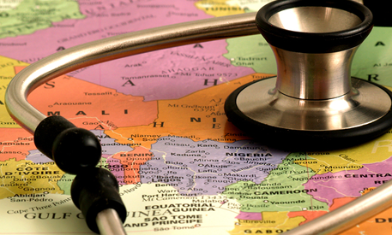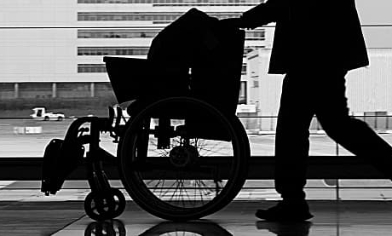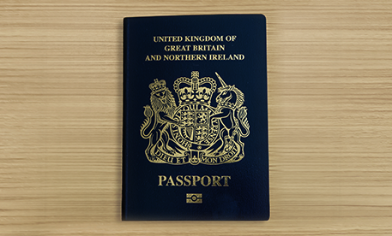In this guide

Is it safe for me to fly when I’m expecting?
If you’re expecting but still love to travel, you perhaps have questions about the safety of flying during pregnancy. After all, now there’s not just your own safety to consider, but also that of the life or lives you’re carrying.
The good news is, if you’re in good health, flying should pose no risks to your unborn child, even travelling long haul.
Most airlines will let you travel up to 28 weeks without a letter from your doctor or midwife. If you’re going to be more advanced in your pregnancy when you travel, most companies will allow up to but not after 36 weeks for single pregnancy. For twins or multiple pregnancies, it’s usually 32 weeks and most airlines require a certificate that confirms everything is proceeding normally, with no complications, and the expected delivery date (source: NHS).
Many people prefer to travel after the first trimester, or 12 weeks into their pregnancy. This is when any effects from morning sickness should have passed, and you’ll feel more comfortable to fly.
Reducing the risk of deep vein thrombosis
Flying for more than four hours when you’re pregnant carries a very small risk of deep vein thrombosis (DVT). A DVT is a blood clot that develops in a deep vein in your leg or pelvis. It’s dangerous if a DVT travels to your lungs and causes a pulmonary embolism.
A DVT is more likely to happen when you have been sitting down for long periods of time. There’s also a higher risk of developing a DVT during pregnancy, and up to six weeks after giving birth.
If you have previous history of DVT or a high body mass index (BMI), you may be at more risk. Always talk to your doctor or midwife if you have any concerns about DVT, and they will be able to advise you about flying.
How to reduce the risk of DVT
- Wear loose clothing and comfortable shoes
- Drink plenty of water to keep hydrated
- Avoid caffeine which can be especially dehydrating when flying
- If possible, choose an aisle seat so that you can easily get up and move around during the flight
- If you don’t have an aisle seat, you can do leg and ankle exercises in your seat. Aim for every 30 minutes or so
- Compression travel socks can help to reduce swelling and improve your lower leg circulation
Health issues and diseases to think about before you travel
Depending on where you’re going on holiday, you may need to consider vaccinations or medication to stop you getting malaria. There are two types of vaccinations:
- Some use dead (inactive) viruses
- Some use live viruses
Vaccines with dead viruses are usually safe if you are pregnant. But always talk to your midwife or doctor to check if they are right for you.
If you need to go somewhere where a live vaccine is needed, your healthcare advisor can give you the best advice and up-to-date information.
Malaria, dengue fever, Zika and other mosquito-borne diseases
Some malaria tablets aren’t safe to take if you’re pregnant. Always ask a doctor to recommend and give you the right tablets.
At the moment, there are no treatments for dengue fever or Zika virus. So it’s very important to stop mosquito bites. If you can, try not to travel to countries where these diseases are common, including:
- South and Central America
- Africa
- Asia
- the Caribbean
- The Pacific islands
These diseases are more commonly found in urban rather than rural areas. You can find the latest Zika risk information on the Travel Health Pro website.
Travel insurance and pregnancy
Check your cover is still suitable
Once you’re pregnant, it’s even more important to be up to date with your travel insurance.
Read your policy documents and check with your insurer if you’ll be fully covered during your pregnancy. If you give birth unexpectedly while away, will your newborn be covered too?
Don’t assume all providers and policies offer the same cover for pregnancy. The pregnancy term they’ll cover you within, their due date restrictions and other conditions may vary.
With Post Office Travel Insurance, you’re covered for any medical issues that arise from your pregnancy if your trip begins before the 28 week mark. The limit is 24 weeks if you’re expecting more than one baby. You’ll also need to be signed off as fit to travel by your midwife or doctor.
Shop around online to find the right cover for your individual needs. Consider any optional add-ons that can give you extra peace of mind when you’re away. And look for value-added services that will look out for you while you’re away, like free support for outpatient healthcare if you need it.
Here are a few more suggestions to make sure your trip goes smoothly:
- Take your handheld pregnancy notes in your carry-on luggage
- If you’re taking medications, carry photocopies of your prescriptions (not the real things). And keep your medications in your hand luggage
- It’s a good idea to have written confirmation from your midwife or doctor of your due date and that you’re fit to travel. Include their phone number or email address so they can be contacted if needed
- Carry your travel insurance documents in your hand luggage
- If you don’t have one already and are travelling to Europe, apply for a Global Health Insurance Card (Ghic). If you already have a Ehic (European Health Insurance Card), check to make sure it’s still in date, and replace with a Ghic if it’s expired. It’s free, and you can apply for one on the NHS website
Helpful information
Here are a few websites that can help you plan for your trip:
Key takeaways
- If you’re healthy, flying while pregnant is usually safe. Most airlines let you travel up to 28 weeks without a doctor’s note
- Sitting for a long time can raise the risk of blood clots (DVT). Move around, drink water and wear loose clothes to help prevent this
- You might need vaccines or malaria tablets before your trip. Always check with your doctor to see what’s safe in pregnancy
- Make sure your travel insurance covers pregnancy. Carry your notes, prescriptions and insurance papers in your hand luggage
Make sure you're covered
Common questions
-
Flying during pregnancy, especially in the third trimester like 32 weeks, can carry some risks. This far into the pregnancy, the chances of going into labour are higher. This means there’s the chance of delivery in flight, or the need to divert to a location without good quality obstetric services.
While it’s generally safe for most women with uncomplicated pregnancies to fly, it's always best to consult with your midwife or doctor before making any travel plans.
If you’re expecting more than one child, most airlines won’t allow you to fly beyond 32 weeks. For single pregnancies, the limit is 36 weeks. And most require a certificate after 28 weeks to confirm the due date and that all’s well with the pregnancy.
-
How your travel insurance will cover travel during pregnancy could differ depending on the insurer and the policy type you have with them. There’s typically no need to declare your pregnancy when applying for cover. However, if you have any medical conditions that relate to your pregnancy, you’ll need to declare those to make sure your cover remains valid.
It’s important to read the policy wording and terms and conditions carefully. Make sure you’re clear on what cover is provided for issues arising from or that might impact your pregnancy, such as medical emergencies or trip cancellations. For instance, can you make a claim if finding out you’re pregnant means you can’t take a pre-booked trip because it takes place beyond the pregnancy threshold the policy will cover?
-
No, you don’t need to declare your pregnancy when applying for travel insurance, or to update an existing policy by letting your insurer know you’re pregnant.
You do need to declare any medical conditions arising from your pregnancy. If you don’t, your policy may not cover any pregnancy-related issues or medical emergencies you face during your trip.
-
Check with your insurer what duration of your pregnancy they’ll cover you for, and the cover they provide for cancellation if you’re unable to travel.
With Post Office Travel insurance, pregnancy and medical conditions arising from pregnancy are covered provided you won’t be more than 28 weeks pregnant (or 24 weeks for multiple births) when your trip’s due to start and a medical practitioner or midwife confirms you’re fit to travel.
If you’ll be passed this threshold or are declared unfit to travel, you should contact your airline and/or tour operator in the first instance. They may be able to move your trip to another time, such as earlier in your pregnancy. If that doesn’t work, you can submit a claim for cancellation on your Post Office Travel Insurance policy.
Remember to check your airline’s policy on how far into your pregnancy they’ll allow you to fly, too.
Travel insurance to suit all needs
-
Single-trip cover
Offering cover for anything from a short UK break to a year of travelling around the world. Perfect for short or long trips for anywhere in the UK or abroad
-
Annual multi-trip cover
Travelling more than once this year? An Annual Multi-trip policy could save you time and money. Covers you for multiple trips for a 12-month period
-
Backpacker cover
Aged 18 to 60 and looking for a gap year, career break or to travel the world? We could have the cover you're looking for. Covers you for one trip up to 18 months
Related services and guides

Travel insurance for people with high blood pressure
Travelling with high blood pressure is fine – but it’s important to make sure you’ve got the right cover in case something goes wrong abroad.

Travel insurance for seniors and travelling with grandchildren
Read our guide to travelling in later life. We explore what to look for in your travel insurance, plus taking trips with your grandchildren.

Schengen travel insurance for UK travellers
There are different rules for travelling to the Schengen Area from the UK since Brexit. If you’re visiting this part of Europe, find out if you need a Schengen visa and travel insurance.

European and Global Health Insurance Cards
If you're travelling to an EU country from the UK, make sure you take a Global Health Insurance Card (Ghic) with you or existing European health Insurance Card (Ehic), if it's still in date. You'll need them to access free healthcare during your stay, should you need it.

Family travel insurance
If you're travelling abroad as a family, it makes sense to take out insurance that covers you all. Especially if you have little ones.

Travel insurance for diabetics
You should be able to get the right cover to travel abroad if you’re diabetic, making sure that your medical needs are taken care of.

Travel insurance for cancer patients
If you're living with cancer but love to travel, can you get travel insurance for your trip?

Kids’ travel insurance
It's a proud feeling when children turn eighteen and start holidaying on their own. Although, perhaps it's tinged with a feeling of relief. But you can't help but worry a little too.

A complete list of backpacking essential items
Going backpacking is one of life’s great adventures. But before you set off you’ll need some packing tips so you're not weighed down on the way.

Do I need travel vaccinations?
There’s no better feeling than planning an amazing trip to an exotic destination. Make staying safe with travel vaccinations top of your to-do list.

Vaccinations needed for Thailand
Some vaccinations for Thailand are recommended and some are mandatory in certain circumstances. It’s important to know which vaccinations or injections for Thailand you need to get before you leave home.

When to buy travel insurance
Do you need travel insurance for your trip? Is travel insurance worth it? And, if yes, when is the right time to buy cover?

How to pack a suitcase
Whether you’re heading to the beach for a much-needed break or boarding a boat for a cruise somewhere breath-taking, it’s important to know what to pack in advance so you’ll have everything you need.

Travel insurance for India
For many UK holidaymakers, India is an intriguing and diverse culture with colourful traditions and engrossing history. For many others, it’s a home from home.

Travel insurance for Ireland
Do UK residents need travel insurance for Ireland? And what healthcare is available for Brits if they’re visiting the country?

Is Airbnb safe? Tips on staying safe
The arrival of Airbnb has helped to transform the travel industry in recent years. On any one night, over two million people stay in homes advertised through Airbnb in 65,000 cities around the world.

Holiday packing and pre-travel checklist
So, you’ve booked your flights, accommodation and activities. What next?

Don't make these holiday mistakes
Booking a last-minute holiday can get the blood pumping with the sudden thrill of adventure, but it also makes it easier to overlook things.

Do I need travel insurance for a UK break or staycation?
Travel insurance for a holiday in the UK isn't something you must have, but it might be something you want to have.

Travel insurance for Dubai
Discover top places to visit, tips on staying safe and why travel insurance is essential for an unforgettable Dubai adventure.

Gap year travel advice for solo travellers
Exploring the globe can be scary, but there’s so much to find at the edge of your comfort zone. We look at some of the top destinations to visit on your own – and share tips on how to keep safe when you go.

How to get a free flight upgrade
There are several ways to get to the top of the class on your flight – whether that's business or even first.

Travel insurance for Greece
Greece and the Greek islands have long been a popular travel destination for us Brits. But are there any travel risks or other factors to keep in mind before and when you go?

Travel insurance for Mexico
Find out about medical care available to Brits in Mexico, as well as travel risks, transport options and the importance of taking travel insurance.

Travel insurance for Morocco
Perched on the northern tip of Africa, Morocco’s long been a popular destination for UK holidaymakers. If you’re heading there soon, make sure you’ve got good travel insurance to cover you.

Travel insurance for New Zealand
Find out what medical care Brits can access in New Zealand and travel risks to be aware of like natural catastrophes, however rare.

8 tips on staying safe while you enjoy your winter sports
The white stuff is alluring, so make sure you can enjoy it safely, are ready for the unexpected and pack travel insurance for extra reassurance.

The Travel Safety Index for Solo Travellers
Travelling solo means freedom and independence, making new connections and never having to compromise.

Travel insurance for Egypt
Make sure you’re travelling safely in Egypt with the latest advice and risks, and learn about getting around and local culture.

Everything you need to know about embassies
Learn the difference between embassies and consulates, and why you might need them when travelling.

Flight delays and compensation
Most of the time, getting a flight is a hassle-free event. If you only take hand luggage, have your boarding pass saved to your phone and everything’s running to plan then you can breeze through security and hop on your flight with little fuss.

Travel insurance for France
It may be a short hop away, but a trip to France is not without its travel risks. Make sure you’re clued up on what they are and have travel insurance in place to help protect you, so you can concentrate on just enjoying your break.

Travel insurance for Cuba
Today, Cuba is more accessible than it has been for many decades, and those who decide to holiday there can expect a mixture of colourful city life and luxurious beaches.

What you should do about delayed, lost or damaged luggage
The last thing you want to happen on holiday is standing the luggage carousel at the airport waiting for bags that don't appear. It's a huge inconvenience that can cost you time, money and a lot of stress.

Travelling while you work or vice versa
The opportunities to combine business and leisure have never been greater. You could be planning some ‘bleisure’ time, taking a ‘workation’ or diving into becoming a digital nomad.

Compare our travel insurance
Travel insurance is essential for any trip. It can help protect you from things like flight cancellations, medical emergencies and lost luggage.

Understanding cruise travel insurance
Thinking of going on a cruise? Learn how cruise travel insurance protects you from unexpected events on board, at sea and on land, for smooth sailing and a stress-free experience.

Top cruise destinations for your bucket list
Ever dreamed of sailing to the world’s most exciting places? Cruises can make that happen.

Travel insurance for Italy
Find out about the safety of travelling to Italy as well as the medical care available to Brits and how to get around.

Travel insurance for Japan
If you’re jetting off to Japan soon make sure you have good travel insurance to cover your trip. The right policy may offer more protection than the standard medical care UK citizens can access when they visit.

10 tips for keeping kids safe on holiday
We all know the feeling – getting to the airport, then a wave of panic comes over you. Did you remember your passport? What time's the flight? And where on earth did you put the kids?

10 ways to look after your valuables at the beach
The whole idea of lounging around on the beach is to switch off and enjoy the sunshine. But the reality is that opportunistic thieves are on the lookout for unattended valuables, and it’s important to make sure you’re protected.

Don’t let illness spoil your perfect holiday – book an online doctor
There’s nothing worse than falling ill while away from home. Along with the worry of the cost of visiting a doctor and getting treatment, being poorly can put a real dampener on your trip.

What is the best month for a Caribbean cruise?
Dreaming of turquoise waters and sun-kissed beaches? Planning the perfect Caribbean cruise starts with choosing the right time to go. This guide explores the best month for a Caribbean cruise, what weather to expect and how to prepare.

Travel insurance for Canada
Canada is a vast country of diverse delights – everything from bustling cities to snow-capped mountains, deep forests and crystal clear lakes. If you're thinking of experiencing them, it's time to consider your travel insurance.

Travel insurance for the Canary Islands
People flock to the Canary Islands from all over Europe. No wonder, with such appealing beaches, landscapes and temperatures to enjoy.

Travel insurance for the Balearic Islands
It’s one of the most popular holiday hotspots for UK holidaymakers. But what can you expect from a trip to the Balearics?

Getting travel insurance for an adventure holiday
Adventure holidays come in all shapes and sizes. They can be full of action or just include a few activities, depending on the type of getaway you’re going for.

What to do if your airline or holiday company goes bust
Finding out that your airline or holiday company has gone bust is a shock – especially if you’re on holiday at the time. But there are plenty of laws and regulations in place to protect you and your family from losing what could be a lot of money.

How to get assisted travel at airports
Lots of people who need assisted travel at airports are missing out simply because they don’t know how to go about asking for it.

Australia travel insurance
Find the best places to visit in Australia, tips on staying safe and why travel insurance is a must for your trip.

Travel insurance for South Africa
How safe is South Africa to visit and why is having travel insurance important when you go? Our guide looks at the potential travel risks and the cover you may want to look for in a policy.

Spain travel insurance
Discover some top places to visit in Spain, tips on staying safe while you’re there and why travel insurance is essential for an unforgettable Spanish adventure.

Travel insurance for Thailand
Thailand’s idyllic beaches, azure-blue sea, buzzing cities and exciting alternative scene are a draw for Brits. A trip can be a once-in-a-lifetime event.

Find hot holiday destinations any time of year
If you're the type of sunchaser who looks forward to that sizzling summer break, can’t wait to escape to warmer climes in the UK’s winter months or can't be away from vitamin D too long, we’ve got a few ideas about where to go.

Post Office Travel Insurance Winter Sports Survey
With the winter sports season upon us, we conducted a Winter Sports Survey for the second year running. It found as many as four in 10 UK travellers (39%) planned to take up a winter sports activity this year, with 25% keen to go skiing. It also emerged that many prefer winter escapes to summer ones. But has the nation considered all the protection we need for winter sports holidays? Or are we woefully underprepared?

Winter sun holiday destinations to escape to
Looking to escape the chilly UK winter? Our Winter Sun Survey reveals the top sunny destinations UK travellers are choosing this season. And learn why travel insurance is key for a worry-free holiday in the sun.

Where is hot in March, April and May?
Spring is a great time to leave the cooler UK and go somewhere sunny. And we can help with that.

Travel tips for babies, toddlers and young kids
Travelling with kids? Before you get on the plane, read our quick and easy guide to help make sure your journey runs smoothly.

Top tips for going to festivals overseas
With festivals overseas becoming the new norm, festivalgoers need to do a bit more planning than for a UK festival.

How to protect your travel documents
While it’s useful to take hard copies of travel documents away, you can minimise your worry and risk. Here are some handy tips on keeping your travel documents safe.

How to travel with your dog
Taking your best friend on holiday with you is everyone's ideal situation, but travelling with a dog can be a complicated process. Make sure you know how.

Travel insurance for Turkey
A trip to Turkey offers toasty beaches and tourist treats aplenty. No wonder it’s so popular with holidaymakers from the UK and elsewhere.

USA travel insurance
Discover top places to visit, tips on staying safe and why travel insurance is essential for an unforgettable USA adventure

Travel hacks to help save money on your holiday
Satisfy your travel craving while making your holiday budget go further.

Great tips for people travelling alone
Whether you’re travelling solo because of business, you’re hoping to meet someone, or simply because you enjoy it, being by yourself can sometimes be a daunting prospect when you’re abroad.

Travelling without insurance: Why you should never take the risk
If you’re thinking of heading abroad without insurance, think again. This guide explains why doing so can be risky, busts common myths about the need for insurance and shows how easy it is to protect yourself.

Where is hot in September, October and November?
Looking for holiday destinations that promise warmer days as UK temperatures start to fall? We can help with that.

Where is hot in December, January and February?
Looking for holiday destinations that promise warmer days in the UK’s colder winter months? We can help with that.

What can I take on a plane?
Ready to jet off on a much-needed break but confused about what you can take with you on the flight?

Teen travel: holiday ideas for teenagers and tips for parents
Travel can help teenagers grow and discover new places. This guide shares the best trips for teens, advice for those travelling independently for the first time, plus tips for parents too.

What is ABTA?
Over 60 million people travel from the UK most years for holidays or business. The vast majority enjoy smooth, trouble-free journeys. Sometimes, though, things go wrong.

What is ATOL protected?
ATOL stands for Air Travel Organisers' Licensing, a scheme that helps make sure consumers are covered if travel firms fall into financial difficulties.

Safe travels: where can I go on holiday?
Travel’s a great way to unwind, see the world, open the mind and expand horizons. But rapidly changing situations around the world can soon impact such plans.

Taking pets on holiday: Do pets need travel insurance?
Things have changed a lot when it comes to travelling with your pet. Whether it’s a staycation or a trip to the continent, if you want to take your pet, you may need to make special arrangements.

Worldwide travel insurance
Fancy trekking in a remote Asian rainforest? A wild time in New York? Flying over Niagara Falls in a helicopter? Or maybe taking in the sights of Athens or Rome?

Electronic System for Travel Authorisation
With a valid ESTA you can visit the US for less than 90 days without needing a visa – as long as it's for a holiday or business trip. We’ve summarised how it works, how to get one and what you’ll need.

What are biometric passports?
First issued in the UK in 2010, biometric passports add a number of new security features to the traditional passport, with an embedded microchip containing the holder’s personal information.

Checking your passport’s validity before you travel
Heading off abroad? Before you pack your bags, it’s important to check your UK passport’s still in date. Different countries have specific entry requirements. If your passport isn’t valid, it could wreak havoc with your travel plans.

Prepaid currency cards and how to use them
Prepaid currency cards are a secure way to make purchases on trips abroad. They can be a handy alternative to paying with cash and debit or credit cards.

Free yourself from the hassle of cash at festivals
One of the joys of summer are the many music festivals playing across the globe. If you’re hitting the festival circuit overseas, managing your money can be a headache.

Savvy holiday spending with the Post Office travel app
Travel smarter with the Post Office travel app. Paired with a Travel Money Card, it’s your ultimate holiday money manager – and more.

Choosing the right card for spending abroad
Credit, debit or prepaid travel cards? Using the right card when you’re abroad could save you money and help your holiday funds go even further.